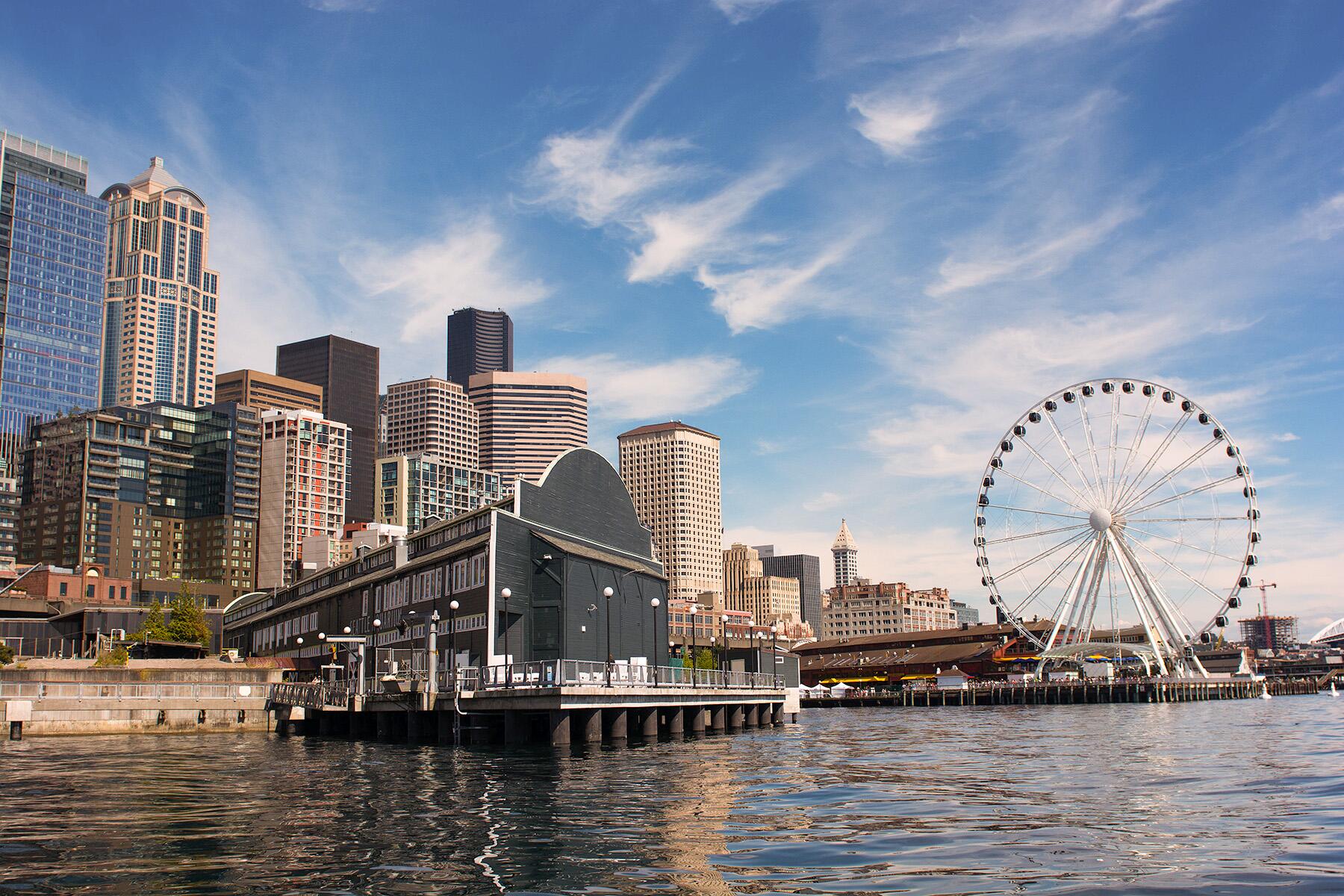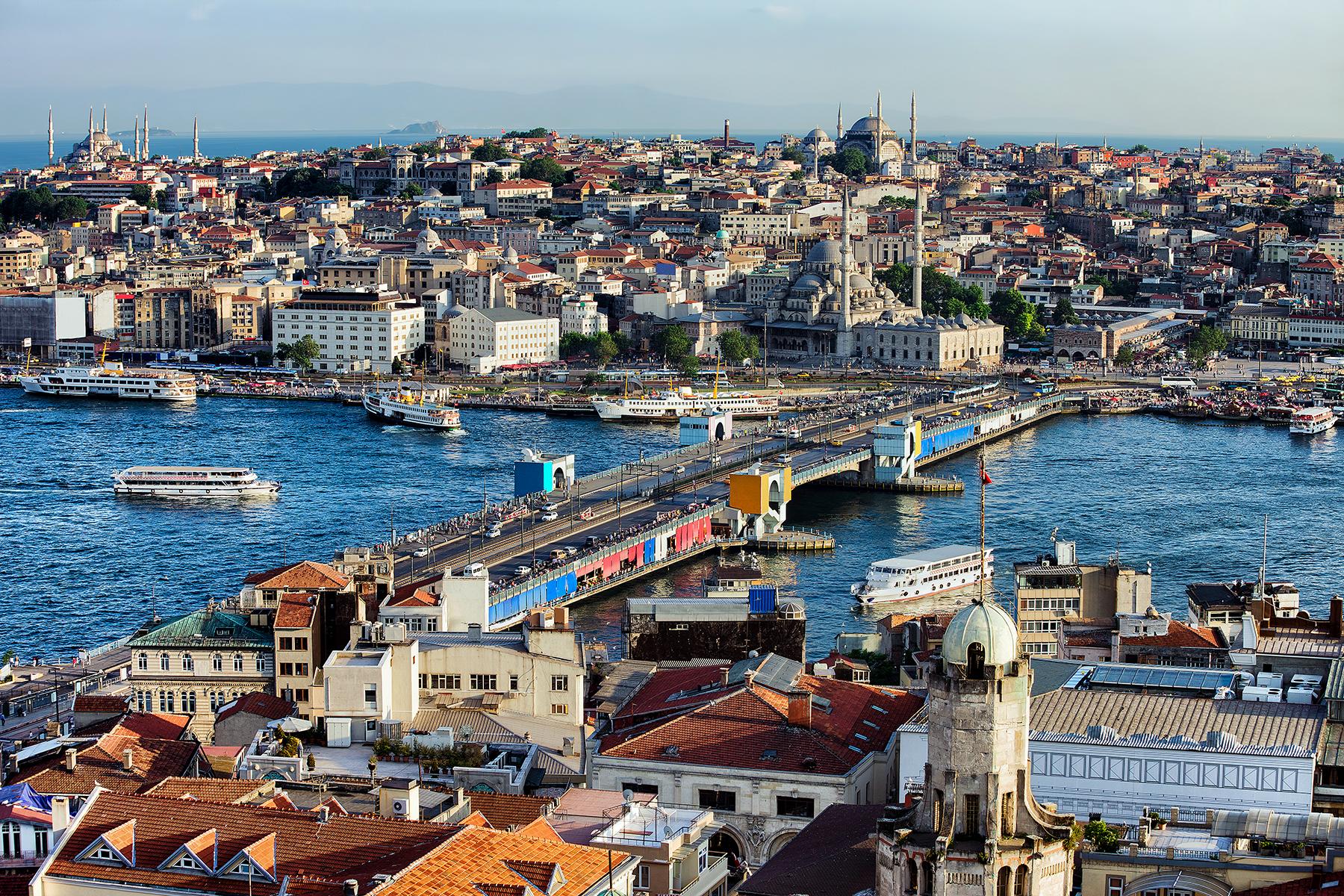Going to Turkey? Hoş geldiniz! (Welcome!) Here’s what you need to know to have a great trip.
Visited by nearly 38 million people a year, Turkey is one of the world’s top 10 tourism destinations, and for good reason. Actually, make that many reasons: history, nature, food, culture, hospitality… With so much to explore, it can be hard to know where to start. These tips will help make your trip as rewarding as it can be.
Turkey Is a Big, Diverse Country
Justly famed for its ancient ruins, scenic coastlines, and the fantastical landscapes of Cappadocia, Turkey holds plenty of surprises, too. Nearly twice the size of California (at 300,000 square miles), Turkey has mountains and deserts, forests and farmland, traditional rural villages and the vibrant mega-city of Istanbul. Outdoor-lovers will thrill to hike in the rugged Kaçkar range or on the Lycian Way above the sparkling Mediterranean Sea, while foodies can enjoy fine dining in Istanbul or delicious regional home-cooking and a warm welcome in no-frills lokantas (restaurants).
Turkey Is a Destination for All Seasons
Turkey’s geographical diversity means it’s possible to holiday there at any time of year, depending on where you want to go and what you want to do.
Summer is the busiest time, as beachgoers throng to the scorching Mediterranean and Aegean coasts. Temperatures will be high in Istanbul and Cappadocia, too, with crowds at sights and high prices at hotels. It’s a great time to visit the cool forests and mountains of the Black Sea region, however (and the only time to reach the area’s highest peaks, which are covered in snow much of the year).
Winter in Istanbul tends toward the wet and dreary, but you’ll find good deals on hotels and plenty of indoor attractions to keep you busy. Snow-covered Cappadocia can be magical, and its cave hotels cozy. Coastal weather is still relatively mild (if sometimes rainy), though some hotels and restaurants will close for the season. The far north and east will be very cold, with potential for weather-related travel difficulties, though there’s skiing around Kars and Erzurum.
Istanbul’s cultural calendar is busiest in spring and fall, with generally pleasant weather for sightseeing and shorter lines than during summer. Cappadocia may still be shaking off the winter’s chill in early spring, but its valleys are especially beautiful once the wildflowers start blooming. It’s also a great time to hike, sightsee, and even sunbathe along the coasts; the sea will be warmer in fall than in spring.
Recommended Fodor’s Video
Know How to Dress Respectfully
Local standards of dress differ across the country, so you’ll want to take your specific destinations—and planned activities—into consideration when packing your suitcase. The kind of urban garb you’d wear in any big city around the world will fit in fine in Istanbul, while casual and conservative is the way to go in small towns. The Aegean and Mediterranean coasts tolerate the skimpiest amount of coverage in terms of clothes.
Women must cover their heads, legs, and shoulders in mosques. Standards for men are less rigid, though they should also avoid wearing shorts or tank tops (and may be denied entry if they do). All visitors must take off their shoes to enter mosques, and it’s polite and expected to do the same if you are invited into a private home.
Turkish Food Is Way More Than Just Kebabs and Baklava
If you think grilled meats and syrupy sweets are all you need to know about Turkish cuisine, think again. Each part of the country has its own regional culinary specialties based on what the land produces. Aegean and Mediterranean kitchens make ample use of wild herbs and greens, olives and olive oil, and fresh fish and seafood, most famously in meze, small dishes meant for sharing and traditionally accompanied by the anise liquor rakı.
Food in the Black Sea region features lots of dairy products, corn, kale, and beans, including hearty dishes suited for life in the rugged mountains such as the stick-to-your-ribs muhlama, a rich porridge made from corn, butter, and cheese. The southeast is where you’ll find the best version of the foods most typically considered Turkish—the city of Gaziantep, in particular, is famous for its kebabs and its baklava made with locally grown pistachios. And thanks to migration from all over the country, you can find versions of all of these dishes, and much more, in Istanbul.
Buses Go Just About Everywhere
Rapid growth in the number of regional airports in Turkey makes it easy, and often quite inexpensive, to get around the country by plane. But if you have the time for a more immersive experience, join the locals traveling by bus. Large, comfortable coaches with seat-back TVs and snack and beverage service connect most cities, traveling overnight for longer distances and making rest stops along the way.
To get in between smaller towns and villages, you’ll likely have to transfer to a minibus (sometimes called a dolmuş), which generally serve even rather remote destinations at least once a day, often bringing along deliveries as well as passengers. Payment is in cash, and if you’re seated (or standing) near the front of the vehicle, you may be called upon to pass other travelers’ fares up to the driver, who will likely display a remarkable talent for making change while driving.
The Museum Pass Is Your Golden Ticket Into History
With such a wealth of history to be found within Turkey’s borders, admission fees to museums and archaeological sites can add up quickly. Visiting just two of Istanbul’s top sights, the Hagia Sophia and Topkapı Palace, for example, will set you back 120 TL. History buffs who plan to do a lot of sightseeing will want to buy a Museum Pass Istanbul, for sale at the ticket booths of major sights. The 185 TL pass is good for five consecutive days (120 hours) of admission to a dozen can’t-miss attractions, as well as discounts at many other sights, shops, cafes, travel agents and tours, cooking schools, and Turkish baths. Pass holders get to skip the ticket lines, too.
Similar passes cover sights in other parts of the country, including the Aegean, Mediterranean (185 TL each for a seven-day period), and Cappadocia (110 TL for a three-day period). For the really ambitious, the Museum Pass Turkey offers admission into 300 sights all across the country over a 15-day period for 315 TL.
Drinking Tea Is a National Pastime
You’ve probably heard more about Turkish coffee, but tea is what really powers the country—endless tiny tulip-shaped cups of strong black tea, usually with a cube (or a few) of sugar added. Turks drink more tea per capita than any other country in the world—a whopping seven pounds per person annually—besting even the Brits.
Most Turks would turn their noses up at tea from a bag, sachet, or even a strainer. Tea is instead typically prepared in a çaydanlık, two stacked pots that allow water in the bottom vessel and a very concentrated brew in the top one to boil together on the stove; the two liquids are mixed together to allow the strength of the tea to be adjusted (ask for yours açık if you want it light). An offer of tea is a very common overture of hospitality; in rural places or small towns, especially, it would be easy to spend all day drinking tea with the people you come across. But forget about that “apple tea” you might get offered at a carpet shop; it’s just for tourists (and kids).
Sultanahmet Isn’t the Only (or Even the Best) Place to Stay in Istanbul
Istanbul’s historic peninsula, with the Sultanahmet neighborhood at its heart, is chock-full of hotels within easy walking distance of the city’s most famous sights. But you’ll get a better sense of the lively, complicated, modern city by staying outside of its tourist district—and better food and nightlife to boot.
The bustling Beyoğlu district just across the Golden Horn is perhaps the most appealing option, with boutique hotels in character-filled neighborhoods like Cihangir, Çukurcuma, Galata, and Karaköy, where you can eat at good restaurants, shop in local boutiques, and bar-hop or catch some live music in the evenings. The sights of Sultanahmet are just a short tram ride away. Hotels in tony Nişantaşı, lively Kadıköy on the city’s Asian side, and along the shores of the Bosphorus aren’t as conveniently located for sightseeing but have their own appeal.
The "Evil Eye" is Actually Meant to Protect You
That ubiquitous blue eye-shaped amulet, known as nazar boncuğu in Turkish, is popularly referred to as an “evil eye bead,” but rather than casting a nasty spell, it’s meant to protect against them. Available in an endless number of sizes and variations, they make fun souvenirs or small gifts to take home. Tiny versions of the beads are customarily pinned to the clothing of an infant, while larger ones are displayed inside a house. You’ll also often see one hanging from a vehicle’s rearview mirror, sometimes combined with an “Allah korusun” (May God protect) written on or above the back window—and some motorists will act as if those two things will ensure safety despite any amount of maniacal driving.
There’s a Phrase for Everything in Turkish
Turkish isn’t an easy language to learn—the Foreign Service Institute ranks it along with Greek and Russian in terms of difficulty, though not as tough as Arabic or Japanese—but your attempts to speak it will be rewarded. Turks are generally very appreciative of foreign visitors trying to speak their language, and indulgent with their mistakes. Just learning a few words is likely to provoke smiles, extra helpfulness, and invitations to tea.
In addition to standard phrases that are good to learn in any language, like “hello” (merhaba), “thank you” (teşekkürler), or “have a good day” (iyi günler), Turkish has a wealth of short sayings that are used throughout daily life. Try giving a cheery “afiyet olsun” (literally, “may it be healthy”) to someone who is eating or drinking, a sympathetic “kolay gelsin” (“may it come easily”) to someone who is working, or a “çok yaşa” (“much life”) to someone who has just sneezed. You might even get graced with a “Maşallah!” (roughly equivalent to “praise be”) for your efforts.
Turks Don’t Shy Away From Personal Questions
Once you get a conversation going, it often won’t take long for the questions to start coming—questions that may seem impertinently nosy but are generally well-meaning. Be ready to field (or gently deflect) inquiries about your marital status, plans to have children, what hotel you’re staying at in Turkey, how much you paid for it, and the cost of living back home. Which football (soccer) team you support and which country is better, America or Turkey, are other popular lines of inquiry.
Another cultural difference that may take you aback initially, but is mostly very charming, is how doting Turks can be with strangers’ children, from playing peek-a-boo with a baby on the subway to tsk-tsking a “wayward” parent who’s brought their child outdoors without bundling them up in what’s deemed a sufficient amount of clothes. Don’t be surprised if even a macho-looking waiter wants to coo at your toddler, pick them up, and take them on a tour of the restaurant, kitchen and all.
People may also want to take photos with you or your child. It’s OK to say no politely, keeping in mind that no harm is likely intended. In general, Turkish children and men are happy to pose and preen for photos, though women in conservative or rural areas are likely not to appreciate having a camera pointed at them. Always ask first, with hand gestures if necessary, and respect the answer.
Politics Can Be a Tricky Subject
Talking politics is a popular pastime in Turkey, and locals may try to press you for your opinion on what’s going on in your country, or theirs. Unless you know the person well, it’s best to avoid any direct criticism of Turkey, including its politicians, political parties, and religion. Many people will have an opinion about the U.S. and its politics, especially its foreign policy, and won’t be shy about sharing it, though most recognize that individual travelers are not responsible for the actions of politicians.
It’s advised to give a wide berth to any protests or demonstrations you might encounter while traveling in Turkey, as these have sometimes been subject to violence in the past.
How to Protect Your Health While Traveling
No immunizations are required to enter Turkey as a tourist, though the CDC recommends that all travelers be vaccinated against Hepatitis A, and that those who will be visiting rural areas get the typhoid vaccine as well. Travelers who will be engaged in activities such as camping, hiking, and biking that might put them at risk of animal bites should consider being vaccinated against rabies, which is present in Turkey.
How to Get a Visa
Foreign travelers to Turkey must have a passport valid for at least 60 days, and preferably six months, after the end of their trip. Holders of a passport valid for more than 60 days but less than six months may only be allowed to enter Turkey for a truncated stay. U.S. citizens need a visa to enter Turkey; you must apply for and receive an electronic visa online before your trip. The process is quick and simple, and costs $20 for a visa valid for a stay not exceeding 90 days within a 180-day period. Print out your e-visa or have it ready on your phone to display at immigration control.
What to Do if You Run Into Trouble
U.S. citizens traveling abroad are encouraged to register online with the State Department’s Smart Traveler Enrollment Program (STEP) before their trip to receive safety updates and help facilitate contact in the event of an emergency. Travelers in Turkey can make a weekday appointment online at the U.S. Consulate General, located in the İstinye neighborhood of Istanbul, or the U.S. Embassy, in the Kavaklıdere neighborhood of Ankara, for non-emergency services such as replacing lost passports. There is also a consulate in the southern city of Adana.




